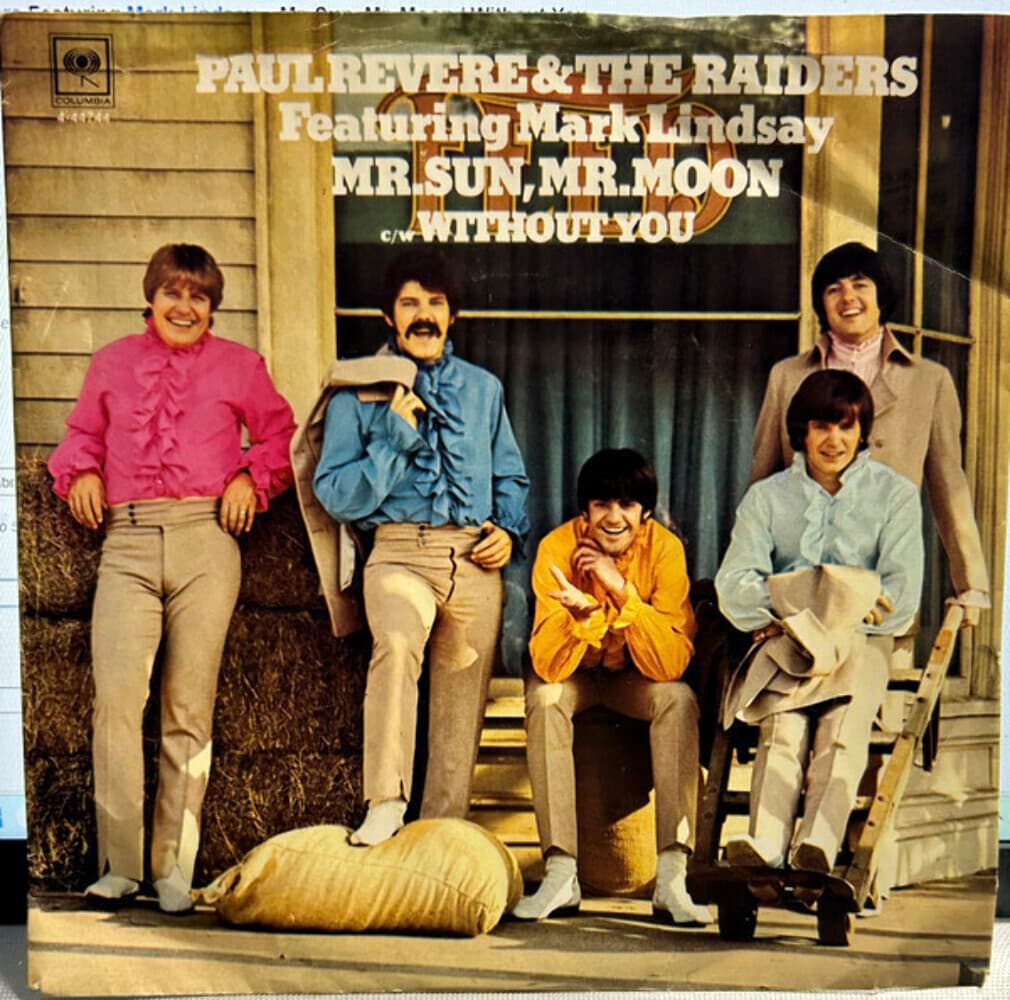
“Mr. Sun, Mr. Moon”: A Melancholy Dialogue with the Heavens
There’s a certain magic to the songs that define an era, tunes that become the soundtrack to shared memories, first loves, and heartbreaks. For those of us who came of age in the late ’60s, Paul Revere & The Raiders were more than just a band; they were a vibrant, high-energy symbol of the times. They were regulars on our television screens, their revolutionary-era costumes and exuberant performances a stark contrast to the shifting, often somber, cultural landscape. While many remember them for their more boisterous hits like “Kicks” or “Hungry,” it was a quieter, more introspective track that showcased a different, more vulnerable side of the band: the deeply affecting “Mr. Sun, Mr. Moon.”
Released in the autumn of 1969, “Mr. Sun, Mr. Moon” found its way onto the charts, albeit in a more modest fashion than some of their previous smash hits. It peaked at a respectable but understated number 78 on the Billboard Hot 100, a position that belied its emotional weight and enduring quality. It wasn’t a raucous anthem for the dance floor; instead, it was a song for a quiet evening, for a moment of reflection. It was the title track of their fifteenth studio album, a record that saw the band exploring a more psychedelic and folk-rock-influenced sound, a notable departure from their earlier garage rock sensibilities. This shift was largely due to the evolving creative vision of the band, particularly the songwriting prowess of lead singer Mark Lindsay.
The story behind this particular song is a beautiful testament to the power of a simple, evocative idea. The song, primarily penned by Lindsay, is a deeply personal and metaphorical conversation with the two celestial bodies that govern our days and nights. It’s a dialogue, a plea, and a confession all at once. The lyrics are not a celebration of the sun or a romantic ode to the moon; they are a direct address, almost a prayer, to these distant, unfeeling entities. The narrator is heartbroken, his life irrevocably changed by the departure of a loved one. He turns to the sun and the moon, asking them to remember his lost love, to keep her in their sight as they traverse the heavens. The sun, a symbol of warmth and light, represents the hope and joy that has now faded. The moon, a symbol of solitude and reflection, mirrors his own loneliness.
The song’s meaning is steeped in a profound sense of loss and the struggle to move on. The narrator is so consumed by his sorrow that he personifies the sun and moon, believing that if they can witness his pain, perhaps his love’s memory will be preserved. It’s a desperate, almost childlike attempt to find a constant in a world that has been turned upside down. The lyrics are rich with poetic imagery, painting a picture of a soul left adrift, a heart shattered by an emptiness that seems to stretch to the very edges of the cosmos. When Mark Lindsay‘s voice floats through the speakers, it carries with it a palpable sense of longing and a quiet resignation. There’s no anger, no bitterness, only a profound sadness that resonates deeply with anyone who has ever experienced the hollow ache of a broken heart.
Listening to “Mr. Sun, Mr. Moon” today is like opening a time capsule. It transports you back to a specific moment in time, to a period of both social upheaval and deeply personal introspection. It’s a song that proves that beneath the flashy stage costumes and the chart-topping hits, Paul Revere & The Raiders were capable of creating music that was not only catchy but also emotionally resonant and enduring. It’s a piece of their legacy that reminds us of the universal nature of love and loss, a gentle, melancholic whisper that still echoes through the years, a timeless conversation between a heartbroken man and the silent sentinels of the sky.